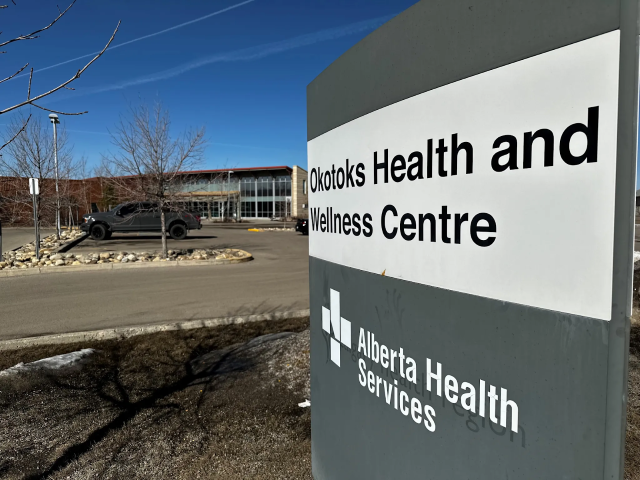
Alberta Health Services is urging Albertans to protect themselves from pertussis after an increase in cases in Okotoks, Alta. and the Calgary Zone in recent months. Derek Brade/Global News
Due to a recent surge in whooping cough cases in Okotoks, Alberta, and the surrounding Calgary Zone, Alberta Health Services (AHS) is urging residents to take precautions against pertussis. Records show a significant contrast in vaccination rates between rural and urban communities for this contagious respiratory infection.
Since November, Okotoks has reported seventeen confirmed cases of pertussis, with one individual requiring hospitalization. These cases were all locally contracted. Additionally, twenty-two more cases have emerged in other parts of the Calgary Zone during the same timeframe, bringing the total in the region to thirty-nine. Throughout the province, there have been 120 confirmed pertussis cases recorded this year.
AHS emphasizes the importance of vaccination as a preventive measure. Currently, the pertussis vaccine is provided at no cost for children, individuals in their third trimester of pregnancy, and adults who have not received a tetanus booster within the last decade. Notably, the pertussis vaccine also offers protection against tetanus and diphtheria. Of concern to health officials is the finding that 86% of both outbreak-related and non-outbreak-related cases were among individuals who were either unvaccinated or incompletely vaccinated.
Dr. Cora Constantinescu, a pediatric infectious disease specialist at Alberta Children’s Hospital, underscores the vulnerability of infants to whooping cough and stresses the importance of vaccinating all family members, including pregnant women, to shield newborns from the disease's severe consequences.
The recent surge in pertussis cases is part of a trend that began over a year ago in the Alberta South Zone. Calgary has been particularly hard hit, with vaccination rates as low as 80%. Dr. Constantinescu notes that the resurgence of vaccine-preventable diseases like pertussis is a consequence of vaccination success, as these illnesses have become less visible over time.
Concerns extend beyond vaccination rates to the capacity of family physicians to effectively communicate the importance of immunization to parents. Dr. Constantinescu worries that primary care physicians, already strained by heavy workloads, may lack the time and resources for in-depth discussions about vaccines with hesitant parents. This poses a challenge as family doctors are crucial in building trust and providing accurate information to vaccine-hesitant families.
The issue of lower vaccination rates is not limited to pertussis alone; rural areas also exhibit lower rates of HPV vaccination, which is typically administered in schools. Dr. Gregg Nelson, professor and chair of gynecologic oncology at the University of Calgary's Cumming School of Medicine, attributes this disparity to insufficient education about the vaccine's benefits and its role in preventing cervical cancer.
In conclusion, the recent rise in whooping cough cases underscores the importance of vaccination as a crucial tool in preventing the spread of infectious diseases. AHS continues to advocate for broader immunization outreach efforts to address disparities in vaccination rates between urban and rural communities and to ensure widespread protection against preventable illnesses like pertussis.















